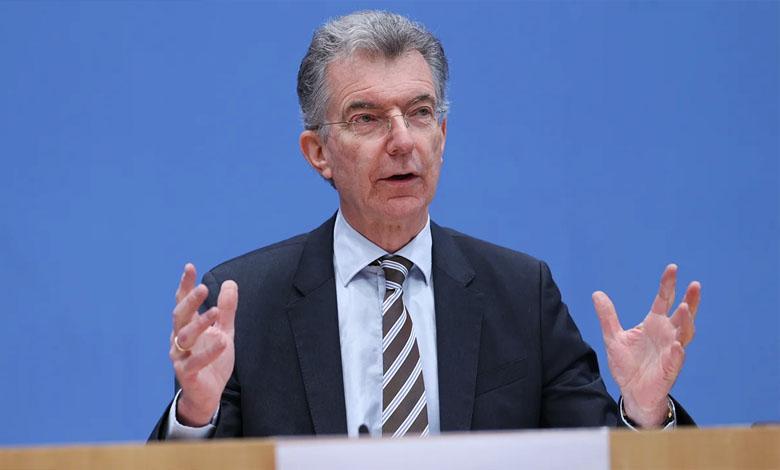Christoph Heusgen closed the Munich Conference 2025 in tears: disagreements, solutions and challenges for Europe

Closing the Munich Security Conference and at the same time chairing the MSK, Christoph Heusgen could not hold back tears. His term of office fell on 2022-2025 — the most difficult times for Europe since the end of the Second World War. “It was incredibly difficult…Heusgen said, wiping his eyes. The hall burst into applause. Later, in an interview with the German media, the chairman of the conference summed up, noting that this year’s security event was a real shock for Europeans. However, at the same time, according to him, it forced to reconsider the ways of protecting Europe from new threats, considering that the USA and Trump have already found themselves “on another planet.”
“Our common values are not so common anymore”
The 2025 Munich Security Conference revealed serious differences between the US and Europe. US Vice President J. D. In his speech, Vance sharply criticized European partners, and the US special representative for Ukraine, Keith Kellogg, directly stated that Europe will not participate in negotiations with Putin. This was a heavy blow for the EU.
In an interview ZDF “Today Journal” the chairman of the conference, Christoph Heusgen, admitted that the events of recent days have become a real horror for Europe. However, he emphasized that this conference gave a clear understanding of the situation: it became obvious that the Trump administration is in a different reality.
At the same time, Ukrainian President Volodymyr Zelenskyy called on Europe to take the initiative into its own hands. European leaders will now have to decide how to respond to these challenges.
Christoph Heusgen concluded that two key points can be made from the three-day Munich conference. The first is the position of Vice President Vance, which actually calls into question the shared values of the United States and Europe.
Second, despite this harsh rhetoric, the participation of other American representatives showed that the transatlantic connection still exists. However, Donald Trump’s influence is felt even among those politicians who are less critical of his policies. “We noticed that even Republican senators are cautious about speaking publicly because they are afraid of the reaction of their president,” Heusgen noted.
Some Americans are also concerned
Some American diplomats also share concerns about possible US decisions against Europe. Former US ambassador to NATO Julie Smith believes that there is a risk that Trump may agree to the withdrawal of 20,000 US troops, which Biden sent to Europe after Russia’s invasion of Ukraine in 2022. These troops are stationed mainly in Poland and Romania, as well as partially in the Baltic states, and make up about a fifth of the total American contingent in Europe.
According to Smith, if the US takes such a step now, other allies – in particular Great Britain, France and Germany – may consider the further deployment of their troops on NATO’s eastern flank too risky. In addition, if Trump wants to deal a political blow to Germany, he may decide to withdraw 30,000 to 40,000 American troops from the country, which will significantly change the balance of power in the region. Smith warns that the situation is deeply worrying.
In addition, NATO allies are concerned about Trump’s recent statements about possible “denuclearization” together with Russia. This could jeopardize the deployment of American tactical nuclear weapons in Europe, which are used by some European air forces.
“The ball is in our court”
“There are decades when nothing happens and there are weeks when decades happen“, – said the President of Finland Oleksandr Stubb summed up the results of the security conference. “The ball is now in our court“, he described the situation when Europe faced reality: the post-war order probably no longer works. Now it will have to independently ensure its own security against the threat of Russian aggression. While some were in a state of shock due to the awareness of this threat, others proposed a more pragmatic approach to its solution. Alexander Stubb emphasized that Europe must prove to the United States its ability to make a significant contribution to global security.
NATO Secretary General Mark Rutte expressed a similar opinion. He noted that in order for Europeans to influence decision-making processes, they need to prove their importance. Only in this way will they be able to return to participating in negotiations regarding Ukraine, in particular in matters related to security guarantees for the country to protect it from possible new Russian attacks.
Although Heusgen, summing up, indicated that he did not see a clear enough reaction from European partners, he noted certain developments. A strong signal from the USA led to the fact that a meeting of EU foreign ministers dedicated to the situation in Ukraine will be held in Paris on Monday. “There was a feeling that Europe really heard this message.”, he noted.
The EU is ready to increase defense spending
Progress is also noticeable in the issue of defense spending. The President of the European Commission, Ursula von der Leyen, proposed to exclude defense expenditures from the rule on the three percent budget deficit in the EU. “There is already a certain readiness to act”, – concluded Heusgen.
The three percent deficit rule (3% of GDP deficit) is part of the Stability and Growth Pact of the European Union. It provides that the state budget deficit of the member countries should not exceed 3% of their GDP. This rule is aimed at ensuring financial stability and preventing excessive growth of debt obligations.
However, in the context of growing security threats in Europe, the idea of making an exception for defense spending is emerging. Ursula von der Leyen proposed to exclude them from the overall calculation of the budget deficit, so that countries can invest more in defense without the risk of violating EU financial rules.
Christoph Heusgen emphasized that it is not so much important for Europe to participate in the negotiations between Russia and Ukraine, but to have a clear plan to ensure Ukraine’s security.
“We must show more determination, because this is what will ultimately impress Vladimir Putin“, he emphasized.
The US no longer wants to defend Europe
Summarizing his talks during the conference, the former Minister of Foreign Affairs of Lithuania Gabrielus Landsbergis notes: it is clear that the US policy under the leadership of Donald Trump has changed the security orientation in Europe. The US no longer wants to remain the main defender of Europe, but is considering the possibility of partially withdrawing its troops and shifting its strategic priorities to other regions of the world. In Munich, one got the impression that the US was preparing to abandon its obligations regarding security in Europe. The speech of the vice-president J. D. Vance Landsbergis and other participants saw it as confirmation that the US government sees itself as an ally of right-wing populist movements in Europe that are trying to destroy the European project, just as Moscow is doing.
Christoph Heusgen chairs the Munich Security Conference. An economist by profession, he started his career in Brussels. After Angela Merkel came to power in 2005, Heusgen became part of her team in the chancellor’s office, and later represented Germany at the United Nations. The 61st Munich Security Conference was Heusgen’s last as chairman.
Heusgen hands over management of MKS to Stoltenberg
In 2025, he will be replaced by former NATO Secretary General Jens Stoltenberg. It is noteworthy that Stoltenberg is high appreciated Heusgen’s work, noting that he made one of the most important gatherings of security policy experts in the world “stronger, broader and better.” Now it will be easier for him to continue this important work.
Stoltenberg, who was supposed to take over the chairmanship of the conference, will temporarily postpone his duties for six months. The reason is his appointment as finance minister in the transitional government of Norway, his native country. However, he will chair the next security conference in February 2026 as planned.





